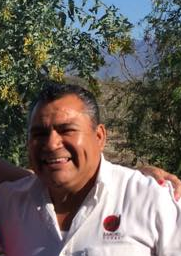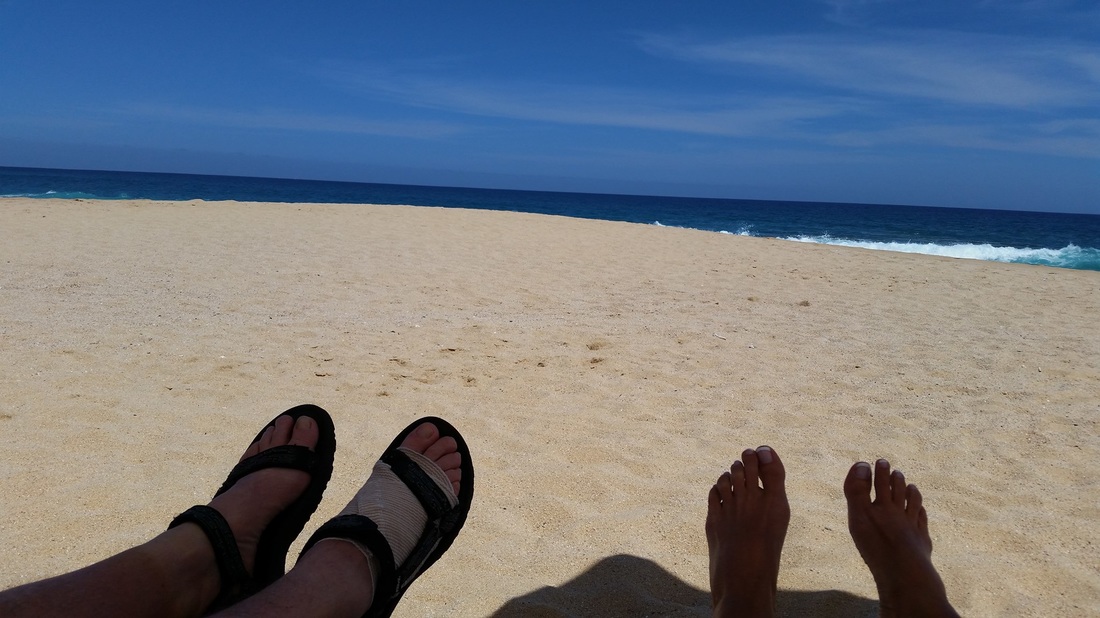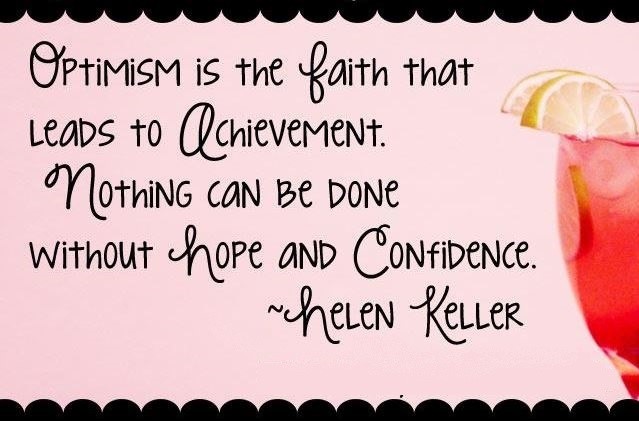 Dave and I went to Cabo San Lucas, Mexico this past week. I like to say that Cabo is good for whatever ails you. Beautiful ocean breezes, tranquil ocean views, the sound of the thundering surf on the shore, and our toes in the sand. And that is just there at the resort. We also adore going into town for a delicious meal or taking a tour of the local area. We are never disappointed with the customer service we receive. On this trip, we took a daytrip to the Sea of Cortez town of La Paz. Our tour guide was delightful and attentive and funny and totally bilingual, even though it was clear Spanish was his first language. He joked before making our first stop that we would be able to sample some local tamales, quesadillas and “the best, best, best, best, best coffee in the world”. Now, we all knew this was likely not completely factual but he had us laughing at the practice of telling people your wares are the “best” of all times. When he was describing the history of a local town, I found myself gazing out the window, imagining this place in the early 1600s. He cleared his throat and said, “Miss Bonita, pay attention. I’m right here.” We all laughed. On the way home, he offered to stop at a blanket factory, and several of us asked, “Will they have the best, best, best, best blankets in the world?” In summary, you might say that on this trip, he lied to us and he rudely pointed out when we daydreamed. In contrast, I believe he knew what many folks who work with the public often miss. People want to build relationships and our words matter. He knew it was important to give the Spanish-speaking tourists the same information he gave to the English speaking participants. He knew when to joke and when to get serious. On our way back into the U.S., Dave and I flew into Phoenix. As usual, we had to clear customs before we could retrieve our luggage and head to our car. Since we both have Global Entry (the system which has expedited re-entry so you do everything on a computer versus seeing an actual agent), we entered our information, received our ticket and headed for the Global Entry exit. As we exited where the sign indicated, a woman in a booth hollered (I don’t use this word lightly, but “hollered” is precisely what she did) at us, “You can’t just walk through there. You can’t go through without holding up your ticket.” Okee-dokee, we both complied and held up our tickets that said we were good to go. She then hollered again, “Ma’am, it doesn’t help if I can’t see your ticket as you wave it in the air. And don’t keep walking without stopping to look at me.” I will be honest. I felt scolded. We both said we were sorry we did not see a sign indicating how we were supposed to exit while holding up the ticket, and we asked, “Can you tell us how we were supposed to know how to walk through this exit?” She grumpily replied, “You should have read the directions when you were first approved for Global Entry.” Wowee. I felt scolded again. I literally bit my tongue to avoid saying something that might have delayed Dave and I getting home to our dogs in a timely fashion, but we both talked about it as we waited for our luggage. What could she have done differently? Oh, so many things, but the main thing was: simply word it differently. A simple, sweetly called, “Yoo-hoo! You can’t slip past me without your golden ticket” would have sufficed. I told Dave the main thing we need to remember in these cases is that people should assume ignorance, not belligerence. What I mean by that is, people who work with people need to assume that people who make a mistake are doing it out of ignorance of the rule instead of jumping to the conclusion that they are being rude or disrespectful and should respond in that manner. Certainly, if she had initially said the above, nicer version, and we kept walking or made an obscene gesture towards her, the next reaction would necessarily need to be different. But the first one? Let’s assume people need help and they aren’t trying to be ugly. When working with students, parents and staff in schools, I believe we have an obligation to do the same. During assemblies to honor our students for grades or good character, parents would inevitably want to clap for their children. We always tried to let them know to hold their applause until the names of that group of students (Kids With Character, etc.) had been called. I would say, “We know you want to be able to hear your child’s name called. Everyone feels that same way, and if we all hold our applause until the five names are called, we can then wildly applaud after all names are called and we can hear everyone’s name.” Notice I didn’t say what NOT to do (“don’t clap until the end” because it sounds a bit more negative), but it really made a difference. You can call it wordsmithing and you can say, “You’re just putting fancy words on the same thing---shut up until all the names are called.” I say “au contraire”. It makes a huge difference in how people perceive the words. Take two teachers in the same hallway. One is constantly shushing her students and saying, “stop that noise” or better yet, “Who is that making that noise?” (as if…) The other teacher looks at her line of students and simply says, “Thank you for remembering to keep your voice quiet in the hallway.” You tell me which one has less discipline problems. What we say and how we say it makes a difference. I am still reeling from the brow-beating I feel we got at the Global Entry exit, but we are letting it go after I blog about it today. I am also still fondly remembering our sweet tour guide, Dionsio, who will likely earn our business on our next trip down to Cabo. Happy Communicating!! Shelly
0 Comments
 Dave and I are on vacation this week in Cabo San Lucas, Mexico this week. We are always grateful for vacation but particularly so after he has been healing from a foot surgery a few months ago and I just had minor surgery myself this past week. A dear friend sent us an email with this story attached and I want to share it with you this week. I would love to hear from folks this week about how you keep looking for the good in life and about how you stay upbeat. I love those stories of optimism and faith and if you share them with me, I will pass them on. In the meantime, enjoy this one. The Parable of the Fork There was a woman who had been diagnosed with a deadly illness and had been given 3 months to live. Her doctor told her to start making preparations to die so she contacted her pastor and had him come to her house to discuss certain aspects of her final wishes. She told him which songs she wanted sung at the service, what scriptures she would like read, and what she wanted to be wearing. The woman also told her pastor that she wanted to be buried with her favorite bible. Everything was in order and the pastor was preparing to leave when the woman suddenly remembered something very important to her. There's one more thing. She said excitedly. What's that? came the pastor's reply. This is very important. The woman continued. I want to be buried with a fork in my right hand. The pastor stood looking at the woman not knowing quite what to say. That shocks you doesn't it? The woman asked. Well to be honest, I'm puzzled by the request said the pastor. The woman explained. "In all my years of attending church socials and functions where food was involved; my favorite part was when whoever was clearing away the dishes of the main course would lean over and say 'you can keep your fork.' It was my favorite part because I knew that something better was coming. When they told me to keep my fork I knew that something great was about to be given to me. It was going to be velvety-chocolate cake or French Silk pie. Something with substance. So I just want people to see me there in that casket with a fork in my hand and I want them to wonder 'What's with the fork?' Then I want you to tell them: 'Something better is coming so keep your fork too.'" The pastor's eyes were welled up with tears of joy as he hugged the woman good-bye. He knew this would be one of the last times he would see her before her death. But he also knew that that woman had a better grasp of heaven than he did. She knew that something better was coming. At the funeral people were walking by the woman's casket and they saw the pretty dress she was wearing and her favorite bible and the fork placed in her right hand. Over and over the pastor heard the question "What's with the fork?" And over and over he smiled. During his message the pastor told the people of the conversation he had with the woman shortly before she died. He also told them about the fork and about what it symbolized to her. The pastor told the people how he could not stop thinking about the fork and told them that they probably would not be able to stop thinking about it either. He was right. So the next time you reach down for your fork, let it remind you, oh so gently, that there is something better coming. Happy Communicating, everyone! Shelly  “Bad things happen to good people.” “When life gives you lemons, make lemonade.” What do all these have in common? A positive outlook and a belief that we can make things better. I have a dear friend who turns the phrase, “Well, she can just get happy in the same pants she got mad in.” Why does she have to get happy in her pants? I want to know. Another dear friend says, “You have to pull your own happiness wagon.” Some days, we may not feel we have enough happiness to fill a thimble, much less a wagon, but I am a firm believer in this line of thinking. When faced with some tough medical news, a difficult work situation or even a devastating turn in a relationship, I believe we have a choice. We can wallow in our own stew or we can step out of it and walk towards better stew. Before I became an elementary school principal, I was a guidance counselor. I would go in all the classrooms and teach about drug education (you know you have reached a pinnacle of professionalism when a 2nd grader, upon seeing you, yells at her parents in Walmart, “Look! There’s the drug lady.” Wowee, let me explain.) and about character education. The issue that seemed most needed was teaching about self-responsibility. I woke up one night with a poem in my head. I wrote it down and began teaching it to all students, Kinder through 5th grade, the very next day. “I always have a choice, No matter what I do. I make the choice and I can’t blame you.” It came loaded with its own hand motions and we would say it as a mantra at assemblies, well past the days when I became the principal. We would say it in our loudest voice, we would say it in a tiny mouse voice (“Channel your own inner Minnie Mouse”, I would advise), we would say it like a big fat whale in the deep blue sea. What was the point? Begin believing you have some control over your actions, thoughts and feelings. Pull your own happiness wagon or get happy in your pants. Whatever you want to call it----the choice is yours! Particularly in public schools these days, some of the things going on seem to be out of our control. Mandates don’t always seem too popular, legislators make decisions about the inner workings of school despite the fact that many of them have not seen the inside of a classroom since they graduated themselves, financial burdens seem to beat schools down. Faced with these challenges, why wouldn’t we just kick and scream and throw tantrums and say “No, no, no”? Maybe we could take a lesson from Helen Keller, a girl who was faced with a couple of challenges herself. One of my very favorite Helen Keller quotes is “So much has been given to me, I have to time to ponder over that which has been denied.” What the what? This is a girl who, at two years old, fell ill and was, for the remainder of her life, deaf, blind, and mute. And she said what?? Perhaps we can take a note from Helen Keller and all those people in our lives who are always able to find the good in every situation, not in a Pollyanna way or an ostrich sticking their head in the sand, but in the way that says, “Just for today, I choose happiness. Why? Because I like it better than the alternative.” And, for your viewing pleasure, check out this example of MAKING HAPPINESS HAPPEN. Happy Communicating! Shelly  Last week, I taught a group of higher education and Pre-K educators (an unlikely combination, you say? Actually many were professors who worked with pre-service early childhood teachers) in Pennsylvania. We shared an amazing day of learning, complete with laughter and aha! moments for participants and the presenter alike. J The night before I taught, I had the pleasure of dining at a local Friendly’s Restaurant. True to its name, the waiter who served me was talkative, congenial and extremely interested in what had brought me to their neck of the woods (ummm…ice cream sundae, I wanted to honestly say). “What kind of work do you do?” he asked me, honestly interested in the answer, not just making small talk. I was really hungry and considered giving him the quick response (“teaching”) so he could go put my order in to the cooks, but alas, I was feeling particularly passionate about my love for what I do, so I gave him the extended version (“I work on educator effectiveness, which means I help teach teachers about what good teaching looks like and I help teacher leaders recognize good teaching when they see it”). The guttural snort the waiter emitted told a story of its own, but he elaborated, “You need to come to my school and teach my teacher.” I smiled sympathetically and said, “Tell me more.” It was as if Old Faithful had just begun gushing. Chad couldn’t help himself. He told me more. And more. And more. As a student at a local university, Chad said he had turned in several papers already this semester but as of last week (May!), he had yet to receive feedback on any of them. “She has graded them but we don’t get any notes or comments on them. How are we supposed to know what we did well or what to do differently if we don’t get any feedback??” he asked exasperatedly. Exactly. After teaching a session, I always review the feedback I am given from the participants. It may not alter my every move next time I teach, but if I have several teachers admitting, “At first we didn’t want to move to different groups throughout the day, but by making us talk to new people helped broaden our perspectives,” it validates the importance of this presenter strategy (in spite of the groans I sometimes hear when I do ask them to move). J Likewise, if participants say, “You know these strategies so well, but when you talk about them, be sure to call them by name, not just by letter, because we don’t know them as well”, I need to be sure to adjust. Grant Wiggins (2012) wrote a great piece in ASCD’s Educational Leadership about effective feedback. Helpful feedback, he says, is goal-referenced, attainable, personalized, and timely. I thought particularly about Chad’s complaint about his teacher and thought, “Wow, she isn’t giving him ANY timely feedback, so he can’t possibly work towards goal attainment. One dear teacher with whom I used to work when I was a principal, said to me, “Thank you for talking with me about my teaching. I’ve never had a principal tell me anything but, ‘Great job, keep it up.’ You make me think about the steps I am taking in my own teaching.” What an incredibly important and powerful position----giving people feedback. I know I need it in my budding golf game. Without Dave reminding me of some of the tips and strategies I am learning from golf instructors, I am left to my own devices, which is a tremendously scary place to be. I revert back to bad habits (let’s be honest, I do this anyway) and then I am frustrated. The feedback serves as a guide, one we all need whether we love getting it or not. Perhaps we need to make feedback a priority in our daily life and work. Giving it should be top on our list of important work if we supervise employees and accepting it is critical in our own growth. In between bites of my ice cream sundae, I made sure I gave Chad some feedback about his waiter abilities but also about some ways he could ask and get feedback from his professor. A win-win, you might say, even though I likely “won” more, as it was a really tasty sundae! Happy Communicating! Shelly Wiggins, G. (2012). September 2012 | Volume 70 | Number 1 Feedback for Learning Pages 10-16 “It’s all about attitude”
Dave and I are going to Cabo San Lucas in May and we are both in need of dropping two or three pounds. Perhaps the winter encouraged us to store up fat in case we got snowed in (no need to remind me we live in Tucson, AZ, thank you very much). No matter. We were ready to get in bikini shape. We decided to try the Military Diet for three days. Basically the diet consists of eating tiny portions of very few, very low-caloric foods for three days. Dave said, “You are half my size. Shouldn’t I eat two eggs when you are eating one?” I just smiled and said, “Just think. You will likely lose double the weight I will lose.” I think he said, “That sounds great,” but I am not certain. :) The goal of the diet is to jumpstart you in some better habits, not necessarily to eat this way all the time. After contemplating this big life-changing event (as if we were going to move to Spain without the dogs for a year), we decided to begin this morning. They say you can drink all the water you want (yea!), so I began the day with a bottle of water instead of my regular packet of hot chocolate. Dave quipped, “Be careful. Your body might not know how to react to you drinking water. Go easy.” Oh brother. We then looked at our menu for breakfast and saw we could have one slice of toast and a half a grapefruit. As we spooned in the first bites of juicy grapefruit, Dave mocked, “Oh this might be too much for me. I’m already feeling full.” “Scoff all you like”, I said as I rolled my eyes. “I have to admit. I am really enjoying the taste of the grapefruit. The combo of sweet and sour is really nice.” Dave said, “I think it is all about your attitude.” We agreed that if you look at the grapefruit in an appreciative way, it makes all the difference in the world. No, it might not be as scrumptious and decadent as a sausage, egg, and cheese breakfast burrito, but if we kept eating those, we knew we would be on the short road to “no swimsuit for you” land. After breakfast, we went to play 9 holes of golf before coming back home to make our lunch, which consisted of one piece of toast and 4 oz. of tuna. Remarkably, a can of tuna is 7 ounces. How could they do that to us? We either open two cans and have leftovers or we only split one can. I asked Dave if we should open two cans, and he said, “No, let’s get wild and crazy and just split one can. Just think---we’ll lose more weight.” Good grief. More eye rolling from me. We both laughed and said we actually tasted the tuna more than we usually do. We could appreciate it more when it was such a small portion. I began thinking, again, about our outlooks on life and our jobs. When we stop taking the good things in our lives for granted and try to look at the good in things, we actually alter our environment. As I said last week, I just finished reading a Corwin publication called “Deliberate Optimism” by Silver, Berckemeyer, and Baenen. One of my favorite lines is: “This negativity helps no one, and as one of our authors likes to say, ‘We are done with that.’ “ The authors talk about how to be deliberately optimistic in our work in education and they tell the story of how an “outstanding principal we know walks into the school cafeteria every day and shouts, ‘Whose school is this?’ The students and teachers respond loudly, ‘Our school!’ Building optimism means believing in our philosophy, ‘Our School, Our Team, Our Kids!’” I love this!! I might even use this line for tonight’s dinner. “Whose 3 oz. steak is this?” I might shout to Dave. “My steak! And I love my five Saltine crackers, too!” Let’s keep remembering how to reclaim the joy in everything we do. Happy Communicating! Shelly |
Shelly ArnesonCategories |



 RSS Feed
RSS Feed